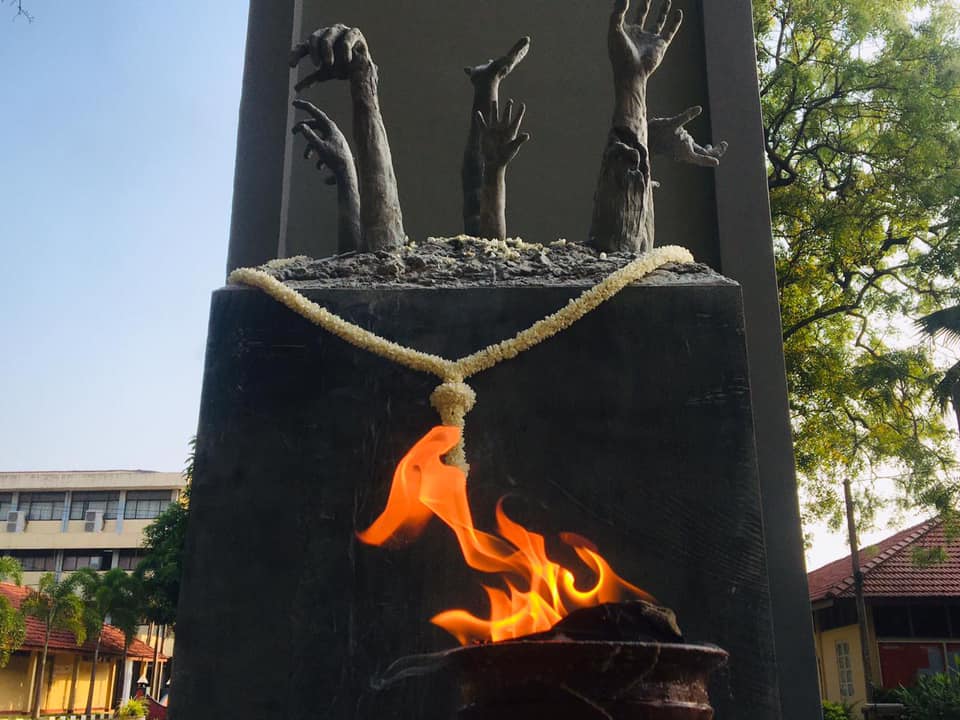
The 'reconstructed' monument unveiled last week, missing sculptures of Sri Lankan shells landing on the outstretched arms.
As authorities at the University of Jaffna unveiled a supposedly reconstructed monument to those massacred at Mullivaikkal last week, there was controversy as key elements of the memorial depicting Sri Lankan military shelling had been entirely removed.
The Mullivaikkal memorial, built to commemorate the tens of thousands of Tamils killed by Sri Lankan government shelling in 2009, was bulldozed by authorities earlier this year. Amidst protests by locals and global outrage, Sri Lankan authorities were forced to backtrack and pledged to reconstruct the monument they had destroyed.
The monument, which featured outstretched arms rising from rubble, amidst half-buried shells, was designed and constructed with the input of survivors of the massacres, such as a student who lost his father in 2009.
However, at its unveiling this week, some students expressed concern at how the supposedly reconstructed monument had sculptures of the shells landing on the arms – representing Sri Lankan military bombardment – entirely removed.
![]()
The original monument constructed in 2019.
The sculpture now features only the outstretched arms.
"The demolition of the old obelisk was completely unacceptable," said one student. "The newly built monument should have been just like the demolished monument. Changing it was unacceptable."
"The monument was erected with the efforts of the students," responded the Jaffna University Students' Union. "Some criticisms have been leveled against it which we have taken into consideration. We will be adding more designs on the newly built monument in the future."
The destruction and replacement monument comes as several other Tamil memorials across the North-East, including cemeteries that housed thousands of fallen fighters, remain bulldozed and some entirely paved over.
"Unimpeded memorialisation is inextricably linked to healing and honouring those lost in the war, and has been one of the fundamental demands of the Tamil people post-2009," said the People for Equality and Relief in Lanka (PEARL) last year, as Sri Lankan state efforts to halt memorial events ramped up.
